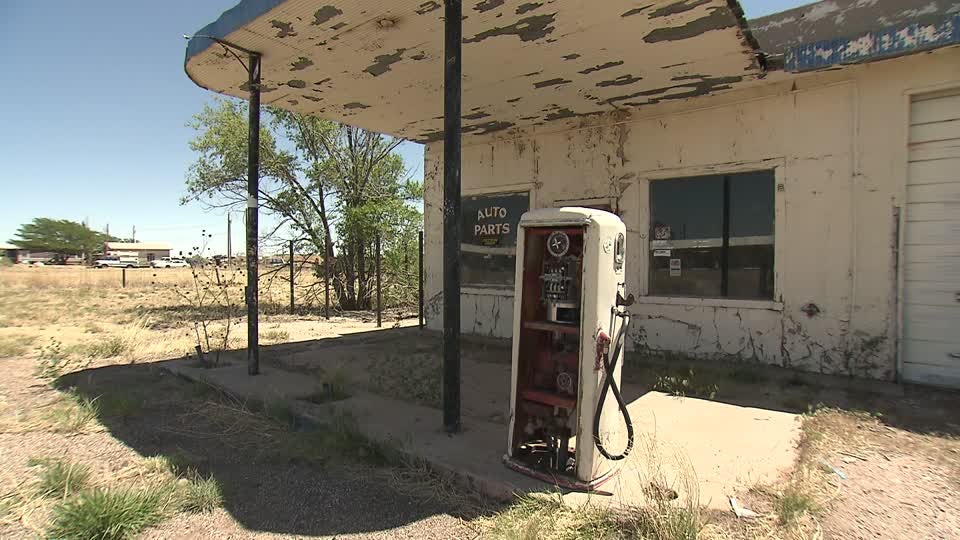
The car as we have known it for the last century is dead; if you don’t believe me head to a playgroup near you, writes Alec Marsh
I may have arrived late to the party, behind all the environmentalists and lavender-growing pollinator obsessives, but at about 11am on Wednesday last, I realised that the car was dead.
My son, just two and a quarter, was playing with a red, yellow and blue Fisher Price garage: you know the one – you may have played with it too once: three floors, with a lift at one side and spiral shoot delivering the cars back to the ground floor at the other. With this set up, though, there was something extra: a plastic petrol pump in canary yellow, replete with tube, and nozzle.
There’s nothing like a bit of alienation, as the great Marxist German impresario Bertolt Brecht knew better than most, to breath discordance into an otherwise accepted reality of daily life. The presence of this tiny plastic petrol pump on a child’s toy was suddenly estranging of reality in a way that, say, a toy car just wasn’t. And somehow, to me, it presence was a gross affront. Such an affront that had the toy shop my son had been playing with moments before – bashing the noisy till to his heart’s content – been selling plastic packets of cigarette I doubt it would have bothered me more.
Why on earth would I want my son to play at decanting litres upon litres of petroleum or worse still, the frankly Jurassic substance that we call diesel, when, in fact, in his bright future, he will probably be able to charge his car up electrically with greater convenience than it currently takes you or me to revive an iPhone.
And more than this, in that blink of an eye, the tiny canary yellow plastic pump showed me how awful the whole business is; how appallingly wasteful and inefficient the economic ecosystem of petroleum is. It also brought crushingly home how fundamentally it represents the passing era of the American century, an era that to some degree will forever be associated with this specific piece of equipment: the humble petrol pump, rather as the Victorian era may be with the tea clipper, perhaps, or a Dickensian urchin.
The sheer bovine magnitude of it all struck me: the ferrying around vast quantities of vile oil – on tankers and lorries and so forth – only then to fill our cars with it, and then carry it around by the gallon as we cheerily pollute the air we breathe with it, having first done something so utterly crude as having burned it. The more you think about it the more medieval it becomes.
So here it is: the car as we have known it is dead, and I saw it on Wednesday, courtesy of a tiny plastic petrol pump.
Already manufacturers will be banned from selling new petrol and diesel-powered cars from 2040 in Britain and France, so we know that the game is over for gasoline longterm. Already Tesla, and now Jaguar with its new (and well-regarded) I-PACE show that the future is here.
But the future arrives quicker than we think, and it hadn’t dawned on me just how antediluvian the whole shooting match of petroleum was. It is a vast wobbling jelly on the brink of an audacious collapse: the business of getting it out of the ground, refining it and everything else – all the way to it spilling out of the end of a nozzle on a BP or Esso forecourt near you, and likely as not onto your trousers too – is about to change for good.
And once you can see the end in life, once you know the end, then the days are numbered. And once they are numbered what has been, what was, can sometimes becomes gross and tainted. Consider the world as accepted prior to the Weinstein scandal. #MeToo is going to happen to oil-driven cars before you know it.
Because what might have been forever – think yourself into the mind, say, of a young British colonial officer in India in the 1930s – is immediately doomed by the appearance of a known obsolescence. To contemplate the end of the Raj was to acknowledge and hasten its inevitability.
What will happen to the 8,400 petrol stations in Britain, and the tens of thousands who work in them and their supply chains, can only be guessed at. And that doesn’t touch on the millions worldwide. But we’ll still need charging points; and charging takes time, so the best guess is that there will be coffee shops or fast food outlets to accompany them. They at least will make for a distracting addition to the toy garages of the future, one perhaps that my grandchildren will enjoy. Meantime, I know that my hitherto prized Volvo, Jurassic-powered as it is, will almost certainly be the last internal combustion-engined car I ever own. And frankly good riddance. As it had been observed, oil is too valuable to burn.
Alec Marsh is editor of Spear’s






